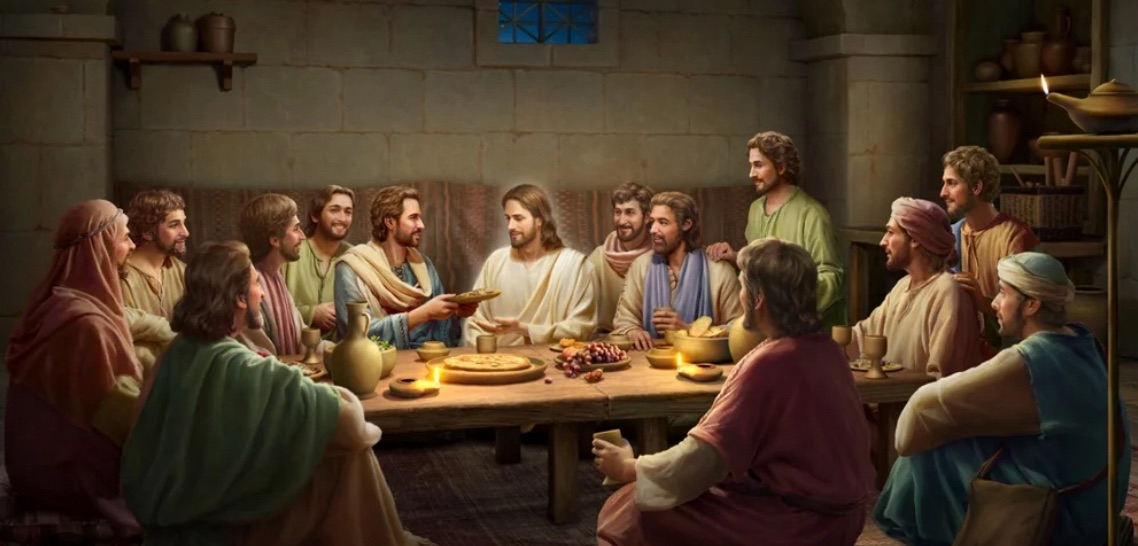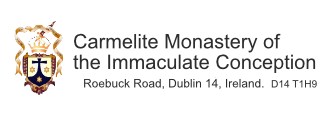3rd Sunday of Easter 2024
Acts 3:13-15, 17-19 1 John 2:1-5 Luke 24:35-48
 Our Gospel Readings for the last two Sundays have been from the Gospel of Saint John. Saint John, the disciple Jesus loved, witnessed more than most of the disciples all the happenings around the time of the Death and Resurrection of Jesus. John is known as the theologian of the Apostles and he is able to give us a very deep and authentic insight into the life of the Lord and into the meaning of His mission to redeem and save the world.
Our Gospel Readings for the last two Sundays have been from the Gospel of Saint John. Saint John, the disciple Jesus loved, witnessed more than most of the disciples all the happenings around the time of the Death and Resurrection of Jesus. John is known as the theologian of the Apostles and he is able to give us a very deep and authentic insight into the life of the Lord and into the meaning of His mission to redeem and save the world.
Today we read from the gospel of Saint Luke. Luke is known as the ‘Portrait Painter’ evangelist: he portrays real life: he shows us the personalities of the gospels: he speaks of everyday things: he touches on real human emotions. In today’s gospel Luke, while describing the early post-Resurrection Church, touches on many of his favourite themes; Joy in the Lord; table fellowship; fulfilment of prophesies; divine forgiveness; the call to be witnesses.
The first part of Luke’s post-Resurrection account gives us an insight into the experience of the disciples. Luke describes with detail and sensitivity the experience of the two disciples on the Road to Emmaus and then their account of meeting the Lord as given to those gathered in the ‘upper-room’. The emotions in the Upper-Room were all over the place: there was still fear, disappointment, doubt, wonder and new expectations. “While they were talking about this Jesus himself stood among them and said, “Peace be with you.” Luke understands how the Lord calmed their fears and their doubts and describes the Lord’s revelation of his risen self in human and familiar terms. Then he gives us a plausible insight to their emotion – “Their joy was so great that they could not believe it, and they stood dumbfounded.”
Another very important experience which is so typical of Luke is the ‘table-fellowship’ which is suggested here by Jesus himself. The greatest sign of Christian community is to share a meal with somebody. Luke want to emphasise the breaking of bread as the way to sustain our relationship with the Lord. And then the teaching of Jesus continues ….. “This is what I meant when I said …...” Then he opened their minds to understand the Law, the Prophets and the Psalms. It was as if the Life of Jesus was at the centre of time, between the old era, which he fulfilled, and the new era of the Church which he was inaugurating.
The final part of Luke’s account of this early post-Resurrection Church contains the Lord’s teaching on repentance for the forgiveness of sins which is to be preached by the disciples to all the nations, beginning from Jerusalem. This is the Mandate, the Call – another of Luke’s themes – “You are witnesses to this!” While the work of Jesus was in a sense limited in time, the work of the Church would go on “in my Name.” For us today our Sunday Liturgy plays out again the three strands of Luke’s account of the post-Resurrection events. Each Sunday is a Resurrection Day. In the Liturgy of the Word our Faith is nourished “this is what I meant when I said ….”.
We are then invited to the table of the Eucharist to ‘Break bread’ and be sustained by the food of everlasting life. At the end of our Mass we are mandated again to go as witnesses of our Risen Lord. We Remember, we celebrate, we believe.
